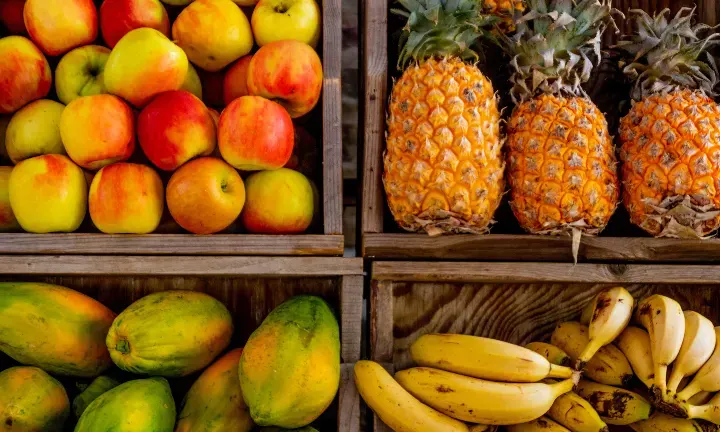Is It Safe To Eat Mangoes During Pregnancy? Nutritional Benefits And Precautions
Pregnancy is a stage in a woman's life that brings about a series of changes and considerations, especially in their diet. Most expectant mothers usually find themselves wondering about the safe, delectable and nutritious food options for themselves and their babies. One of the many questions that generally arises is: Can a pregnant woman eat mangoes? This delicious tropical fruit loved for its sweetness and juiciness not only has a mouthwatering taste but is also packed with huge amounts of necessary nutrients. So, let's go through how safe mango is during pregnancy, what are its benefits and what precautions are necessary while enjoying this fruit during pregnancy.
Is It Safe to Eat Mangoes During Pregnancy?
The good news for mango lovers is that eating mango during pregnancy is generally considered safe. Mangoes, in fact, can be a healthy addition to a pregnant woman's diet. However, moderation is key. Overconsumption of mangoes leads to complications like elevated blood sugar levels, which can be risky during pregnancy, especially for women suffering from gestational diabetes. If you are worried about chemical exposure, you can consume naturally ripened mangoes which will eliminate the problem of calcium carbide, a chemical commonly used in artificial ripening processes. Properly washing the fruit before consumption will reduce the intake of pesticides and other contaminants allowing you to enjoy the fruit guilt-free.
Can I Eat Mangoes During the First Trimester?
Yes, you can enjoy eating mangoes during pregnancy even in the first trimester. This fruit is naturally abundant in vitamins C and A and micronutrients like folic acid and magnesium. It can help with nausea and vomiting, which are common symptoms during pregnancy in the first trimester. The fibre content in mangoes can also help digestion and relieve constipation.
How Many Mangoes Can I Eat While Pregnant?
A mango does not pose any risk to the foetus when consumed during pregnancy, though the amount should be limited for overall well-being. A moderate intake, such as one mango a day, is typically recommended. Generally, it is safe to consume 200 grams of mangoes during pregnancy. However, it is best to avoid added sugar and consume it as is or with yoghurt, milk or other fruits. Avoid consuming the peel or the overripe part of the fruit as they can trigger gut infection or diarrhoea.
This way, you can enjoy the fruit without overloading yourself with sugars and calories. As always, it's advisable to consult with your healthcare provider to tailor dietary recommendations to your specific health needs and pregnancy progression.
What Are the Advantages of Eating Mango During Pregnancy?
Mangoes are indeed a superfood, based on their nutritional profile. Here are some of the most important benefits of eating mangoes during pregnancy:
It is a good source of vitamins
Vitamins A, C, and B6 are essential for the proper development of the foetus. Vitamin A is necessary for the proper growth of the baby's heart, lungs, kidneys and bones, while vitamin C helps promote the absorption of iron to strengthen the immune system.
High fibre content
The fibre found in mangoes helps avoid constipation, which is one of the common problems during pregnancy. This ensures a healthy digestive system and reduces discomfort while experiencing bowel movements.
It contains antioxidants
The antioxidants present in mangoes help fight oxidative stress, thus preventing any cellular damage to the mother and the foetus.
Helps regulate blood pressure
Mangoes are potassium sources that contribute towards healthy blood pressure levels, thus reducing the prospect of complications resulting from pregnancy-induced hypertension.
Good for hydration and energy boost
Mango's natural sugars increase energy levels quickly, whereas the high-water content in the fruit hydrates the body.
Conclusion
Mangoes can make your pregnancy diet a lot more delicious, fun and nutritious if consumed correctly. They offer a plethora of health benefits like providing essential vitamins and minerals to the body, better digestion and regulating blood pressure among many other benefits. However, like all good things, mangoes should also be consumed in moderation and upon consultation with the doctor to avoid any potential health complications. By choosing naturally ripened mangoes and consulting with a healthcare provider, you can safely enjoy this tropical fruit and reap its numerous benefits. Embrace the sweet and juicy goodness of mangoes and nourish both yourself and your growing baby with this delightful fruit.


